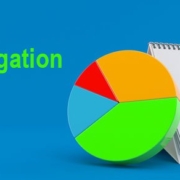Cents-per-mile Rate for Business Miles Decreases Slightly for 2020
- Learn about the decrease in the cents-per-mile rate for 2020.
- Determine how this rate change might affect the way you calculate your deduction.
- Learn how the mileage rate deduction could entice new hires.
- Determine your options if you can't use the mileage-rate deduction.
Does your business use the cents-per-mile rate method for vehicle-related deductions or the actual expenses from the business use of a vehicle? Either is fine, but if you use the cents-per-mile rate method, know that the rate has gone down for 2020, and your deduction for vehicle-related expenses may be less next year. Can't use the cent-per-mile rate deduction? What are your other options? Your Fiducial representative can go through your vehicle-related expenses and help you decide which method is best for you.
The cents-per-mile-rate for business miles is going down in 2020
This year, the cents-per-mile rate, or the optional standard mileage rate, used to calculate the deductible costs of operating an automobile for business decreased by one-half cent, to 57.5 cents per mile. As a result, you might claim a lower deduction for vehicle-related expenses for 2020 than you can for 2019.
Calculating your deduction
Businesses can generally deduct the actual expenses attributable to business use of vehicles. This includes gas, oil, tires, insurance, repairs, licenses and vehicle registration fees. In addition, you can claim a depreciation allowance for the vehicle. However, in many cases, depreciation write-offs on vehicles are subject to certain limits that don’t apply to other types of business assets. Keeping track of all of these expenses can be time-consuming. So, is this the right deduction for you or should you consider another option?
The cents-per-mile rate comes into play if you don’t want to keep track of actual vehicle-related expenses. With this approach, you don’t have to account for all your actual expenses, although you still must record certain information. The IRS needs to know the mileage for each business trip, the date and the destination, which can be taken care of with a simple fill-in chart.

Using the mileage rate is also popular with businesses that reimburse employees for business use of their personal vehicles. Such reimbursements can help attract and retain employees who drive their personal vehicles extensively for business purposes. Why? Under the Tax Cuts and Jobs Act, employees can no longer deduct unreimbursed employee business expenses, like business mileage, on their own income tax returns. If your business plans to offer this perk, make sure you mention it to new hires. It could make a difference and further attract high-value employees.
If you do use the cents-per-mile rate, be aware that you must comply with various rules. If you don’t, the reimbursements could be considered taxable wages to the employees.
The rate for 2020
Beginning on January 1, 2020, the standard mileage rate for the business use of a car (van, pickup or panel truck) is 57.5 cents per mile. It was 58 cents for 2019 and 54.5 cents for 2018.
The business cents-per-mile rate is adjusted annually. It’s based on an annual study commissioned by the IRS. They look at the fixed and variable costs of operating a vehicle, such as gas, maintenance, repair and depreciation. Occasionally, if there’s a substantial change in average gas prices, the IRS will change the mileage rate midyear.
Factors to consider
There are some situations when you can’t use the cents-per-mile rate. In some cases, it partly depends on how you’ve claimed deductions for the same vehicle in the past. In other cases, it depends on if the vehicle is new to your business this year or if you want to take advantage of certain first-year depreciation tax breaks on it. Your Fiducial rep can help you decide which breaks will be most beneficial to you.
There are many factors to consider in deciding whether to use the mileage rate to deduct vehicle expenses. Fiducial can answer any questions about tracking and claiming such expenses in 2020 — or claiming them on your 2019 income tax return. Call Fiducial today at 1-866-FIDUCIAL or make an appointment at one of our office locations to learn more.









